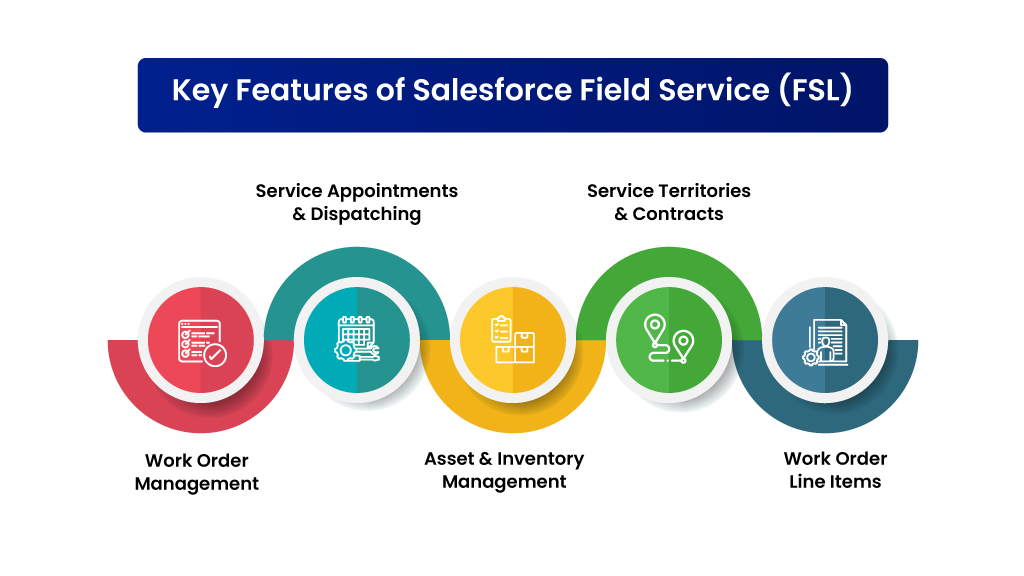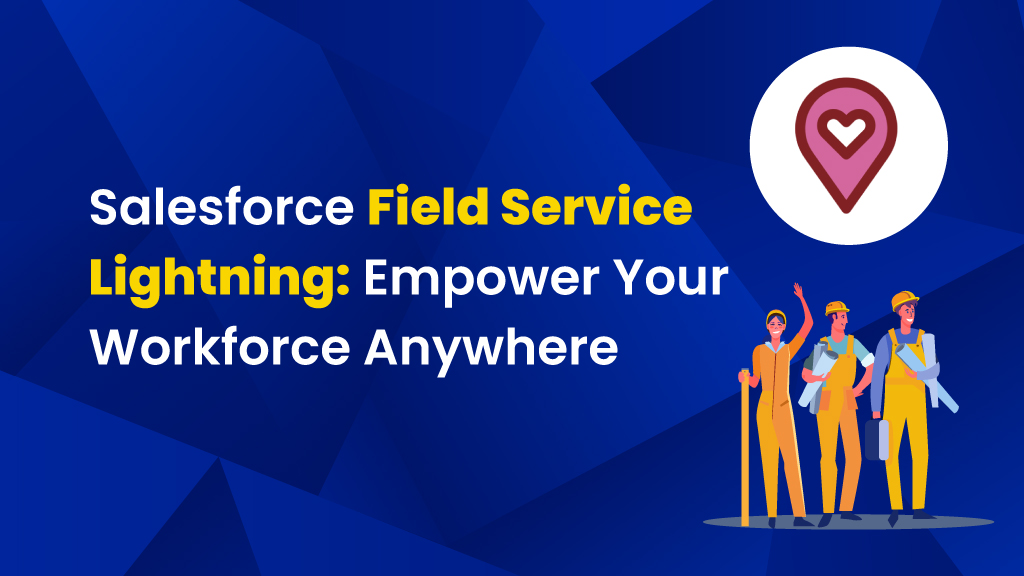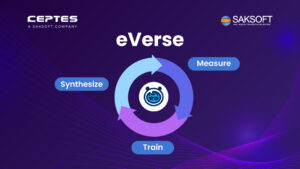In today’s era of the connected customer, it is important to have a connected workforce in order to offer exceptional customer experience. Customer experience is one of the key differentiators between two rival brands. Along with various other aspects, Field Service Management is an important aspect in order to drive superior customer satisfaction. Optimizing field service operations can address multiple common service challenges including service cost reduction, schedule optimization, intelligent job assignment, faster field service calls resolution and more.
Before diving deep into it, let’s understand what Salesforce Field Service is.
What is Salesforce Field Service?
Salesforce Field Service Lightning (FSL) is a Field Service Management solution, an integral part of Service Cloud – helps businesses efficiently manage mobile workforces, streamline service operations, and ensure seamless coordination between service agents, dispatchers, and customers.
With FSL in Salesforce, organizations can automate scheduling, track service requests, optimize resource allocation, and enable real-time communication between field technicians and back-office teams that boost customer satisfaction. The Field Service Lightning app empowers field technicians by providing access to service requests, customer details, knowledge articles, and job status updates—all from a mobile device.

How Does Field Service Lightning Work?
Salesforce’s transformational Field Service Lightning solution works with Service Cloud in order to deliver faster, smarter, and personalized service on the go using a mobile device. With Salesforce1 mobile, field service agents can update work orders, modify request status, and update job status in real time. Before understanding more about FSL in Salesforce, let’s have a look on how does it work:
Field Service Lightning follows a streamlined process to ensure quick and efficient service resolution:
- Service Request Initiation – A customer submits a service request via multiple channels such as email, phone, or self-service portal.
- Case Creation in Salesforce Service Cloud – The request is logged as a case and converted into a work order.
- Work Order Management & Assignment – Using intelligent scheduling and dispatch management, the system assigns the best technician based on skill set, location, and availability.
- Technician Notification & Job Execution – The assigned technician receives the job details through the Field Service Lightning app, visits the customer site, and resolves the issue.
- Job Completion & Customer Feedback – Once the service is completed, the technician updates the status, captures customer feedback, and submits reports via the app.
Why Salesforce Field Service Lightning?
Salesforce Field Service Lightning offers connected customer experience and is highly customizable. Apart from these, it helps you boost your field service workforce productivity, automate appointment scheduling, get real-time visibility, optimize mobile workforce allocation, manage jobs in the field using a smartphone, etc.
Key Features of Salesforce Field Service (FSL):

- Work Order Management – Work orders allow businesses to create and track tasks that field technicians need to complete at a job site. They include information about the type of work, required skills, resources, and deadlines.
- Service Appointments & Dispatching – Service appointments help schedule and plan work orders for a specific date and time, ensuring accurate task assignments for employees and dispatchers.
- Asset & Inventory Management – Businesses can track assets or equipment that need maintenance, including their location, status, and service history. Inventory tracking ensures materials and parts are available for job completion.
- Service Territories & Contracts – Service territories define geographic areas where field service teams operate, improving work distribution and route planning. Service contracts document customer agreements, outlining terms, conditions, and pricing for services.
- Work Order Line Items – These provide detailed information on specific work requirements, necessary skills, costs, and other job details, allowing for more precise job tracking and execution.
Benefits of Salesforce Field Service Lightning for Businesses

In a broader sense FSL can help businesses:
- Seamlessly connect with their customers
Service delivery tracking can be automated with the Dispatcher Console feature. Users can easily customize their dashboard view to a map or a Gantt chart and can get real-time job alerts.
- Deliver guided mobile experiences
Mobile employees and field service agents can share job updates, access knowledge books, view and update van stock or hub inventory, and generate service reports using Field Service Lightning mobile app.
- Enable intelligent work
Workers can schedule appointments as per priority level and optimize jobs in order to pass on a particular service request to the right agent. With Salesforce Platform, standard and custom objects can be integrated with work orders.
- Offer intelligent customer experiences
Any third-party systems can be integrated and with the power of IoT, field service agents can be empowered to take quick actions in order to deliver intelligent customer experiences. Field Service Analytics will help to identify trends and problems early to optimize the mobile workforce.
Why CEPTES?
CEPTES, a Salesforce Summit Partner and three-time PIA Award winner, with over a decade of expertise in delivering end to end, integrated Service Cloud solutions, can help you optimize your field service operations implementing Field Service Lightning to deliver enterprise-level on-site services. Get in touch with us to learn more.
ALSO READ: Top Benefits of using Service Cloud for Customer Service


















